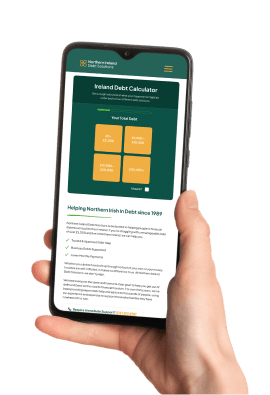In Northern Ireland and across the rest of the UK, there are three main credit reference agencies, Experian, Equifax and TransUnion, which compile information on individuals to create their credit reports. Your credit report is made up of information that is supplied to the credit reference agencies from sources such as the electoral roll, County Court Judgments, and other financial institutions including banks and other lenders.
Your credit record, or credit file, is then used by banks, mortgage companies, hire purchase providers and other credit issuing companies to determine whether you will be offered credit and if so at what rate.
What does your credit score mean?
Credit scores can range from 0 (very bad) to 999 (excellent). Your credit score will affect the amount and type of credit you are offered. However it is worth remembering that each lender uses their own criteria to make their decision, so a good credit rating on its own is not always a guarantee of getting the best deals.
In general credit sores tend to fall into the following categories:
- Excellent (961-999) – You are likely to get the very best deals and interest rates on any loans, credit cards and mortgages etc. that you apply for.
- Good (881-960) – You shouldn’t have trouble securing credit from most lenders, but you may not be offered the very best deals.
- Average (721-880) – You will probably be offered credit but this cannot be guaranteed from all lenders and your interest rates could be high whilst your credit limits may be low.
- Poor (561-720) – You might be accepted for some credit, but your options are likely to be more limited and with higher interest rates.
- Bad (0-560) – You are likely to find it very difficult to secure any credit at all, unless from very specialist lenders.
You can sign up to view your credit score for free from all of the 3 main credit agencies. It is also worth remembering that each of the different credit reference agencies will hold a slightly different credit report for you depending on the data they use to make up your credit score.

Defaults on your credit report
One of the main issues that can adversely affect your credit score is the presence of defaults on your credit score. A default occurs when you either miss a number of repayments entirely, or don’t pay the correct amount. If you do this for between 3 and 6 months then the creditor will cancel the agreement that you had with them and can take steps to reclaim the debt.
The default will then be marked on your credit report and will stay there for 6 years from the date of the default, even if you pay the debt off in full at a later date. In this case the record will be marked as ‘satisfied’ but the default itself will remain.
Before a creditor serves a default on your account they should send you a ‘Default Notice’ which acts as a warning and gives you usually between 2 and 4 weeks to rectify the issue. However this is only applicable if the debt was regulated by the Consumer Credit Act, which not all credit agreements fall under – mobile phone contracts often being an example of something that doesn’t. In these cases you could find that a default has been served without any notice being given.
What a default means to you
When potential lenders look at your credit report and see a default it means that they will potentially class you as ‘high risk’ and either refuse your credit or only offer it to you on more stringent terms with a higher rate of interest.
Once a default is present on your credit record it cannot be removed until the 6 year time period has elapsed. However, if you believe that a default was placed on your record in error then you can contact the lender and ask them to remove it. If this is not effective then you can also contact the credit reference agency and ask them to investigate the matter further.
If the default is correct but the result of an one-off occurrence, such as an illness or a sudden bereavement, then you can add a ‘Note of Correction’ of up to 200 words which can be added to that specific record. This will then be viewed by any potential lenders when they are consulting your credit record and could lead them to view your application more favourably.
Northern Ireland Debt Solutions specialise in helping residents of Northern Ireland out of problem debt situations. We can advise you on how to rebuild a poor credit score and can help you to successfully manage your debt even if you feel that it is spiralling out of control. Contact us today to take the first step in taking control of your debt.
Browse more topics related to this article
Get Started – Contact The Team Today
Ready to take the first step to a debt-free future? Contact Northern Ireland Debt Solutions today to understand your next steps.




